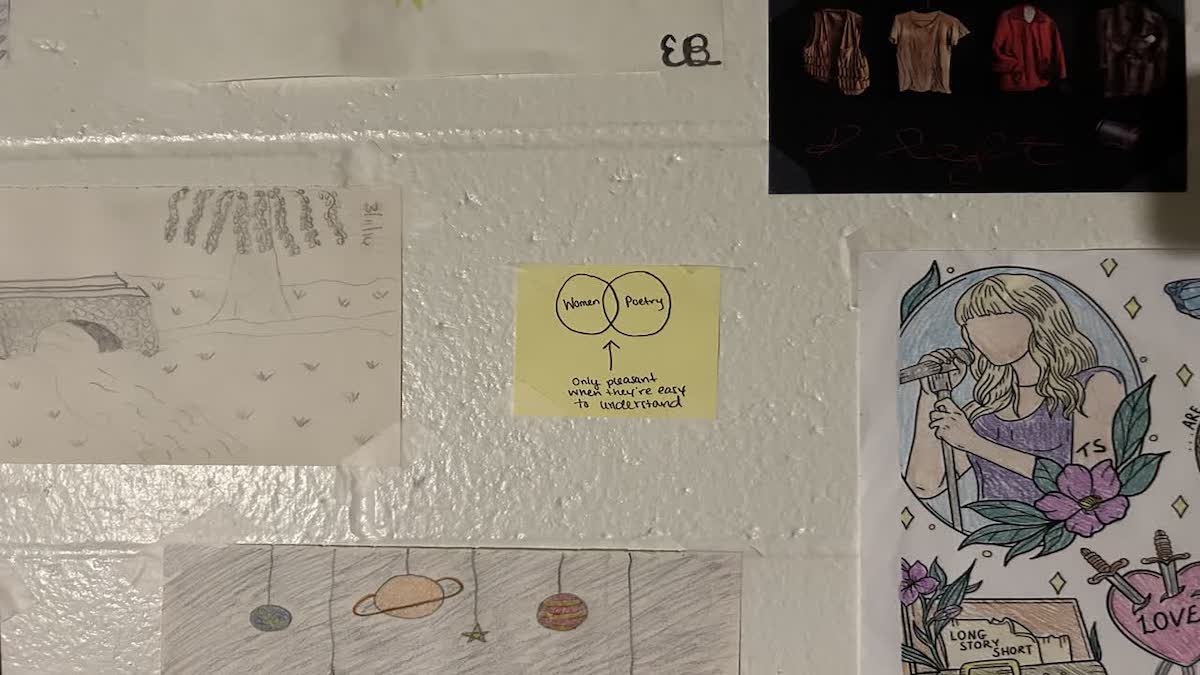I believe our perspectives shape the way we see the world. I also believe the world has the power to change our perspectives on all things.
I’m not much of a talker. As a result, I think. A lot. But given the new year, it feels like a good time to share a few of the things that I’ve recently learned.
Fair warning, my thinking is not as simple as cookie recipes or as outlandish as the lineage of European royalty (which I may or may not also know a lot about). My process is more thoughtful than anything.
Women and poetry: A graphic
I saw a Venn diagram a few days ago that made my jaw drop. The two circles each had a single word inside, “poetry” and “women.” Where the circles overlapped was a line saying, “Only pleasant when they’re easy to understand.”
Historically women have been admired for their simplicity rather than their complexity. They have been attractive in the sense that there’s not very much you have to figure out.
Women weren’t allowed to own land or property, couldn’t take part in politics, were often never taught to read or write and were discouraged from having hobbies outside of housework. They were whatever they were told to be.
And as someone who has admiration for Richard Siken and Robert Browning, I have always loved poetry that makes me think. I have always loved people that make me think. I’m not saying that I couldn’t understand the diagram, I just refuse to agree.
And it poses the question: is it better to be loved or to be understood?
“I’m Not a Mountain” by Sarah Kinsley
I have been listening to it for years, though lately I have been hearing it in a different light.
The song illustrates the yearning to be strong as an individual but the fear of not knowing what is to come without the safety of others around.
A favorite line of mine is, “You say we all go mad / But I don’t believe that / So you prove it to me.” Another is, “I’m not a mountain / I can’t hold you on my own.”
The world is a scary place regardless of whether we brave it alone or with others. This song has shown me that I’m not alone in being afraid and that things aren’t always supposed to be easy.
The idea of gender
As a part of a class that I’m taking at UW-Eau Claire, I recently read the monster of a piece that is “Gender: A Useful Category of Historical Analysis” by Joan W. Scott, which is one of the hardest pieces of gender-focused literature to understand.
Scott concludes that gender is a “social category imposed on a sexed body,” as well as that gender is the “primary way of signifying relationships of power.”
I have been thinking about these ideas a lot since reading about them. I realize now that gender is only ever used in conversations as an attempt to include women. When you think of the word gender, you think of women, not men.
Expression makes us who we are. I’m not going to pretend that I don’t feed into the stereotypes that I was born into. But I now recognize that they only define me if I let them.
It’s so important to have conversations that analyze how ideals of the past have become outdated in our journey to the future. Change is not a one-person job.
Being young but getting older
I turn 20 this year. I must say that it’s not that I think that I’m old but rather the idea of getting older that makes me nervous.
I have waited my entire life to get to the point where my dreams are right in front of me. But what if I reach out to grab them and I miss?
Through my fear, I’ve realized I’m not one of those people who thinks that my fate is predetermined. I used to be shy in the sense that I would shake off bad outcomes as if they were natural. But I’m not like that anymore.
And I don’t fear getting old. I can see how peaceful it might be. I want to be the type of person who looks back at their life and is full of pride, not hollow with regret.
Conclusion
That was a lot to take in. I’m not going to say I warned you (but I did). I want to let everyone process in their own way, but I’ll tell you what I’ve concluded.
There is beauty in complexity, in failing, in expression, in aging, in changing. There is beauty in front of all of us that transcends the textbook definition. And it is something to be appreciated.
Braun can be reached at [email protected].









Sharon Doughty Schmidt • Feb 20, 2024 at 12:21 pm
I’m glad you are realizing getting “old” is okay, because this grandma will not get any younger. That was a terrific article of your opinion on “Women and Pottery”. You are truly an excellent writer and a great chief editor. Love U, Grandma